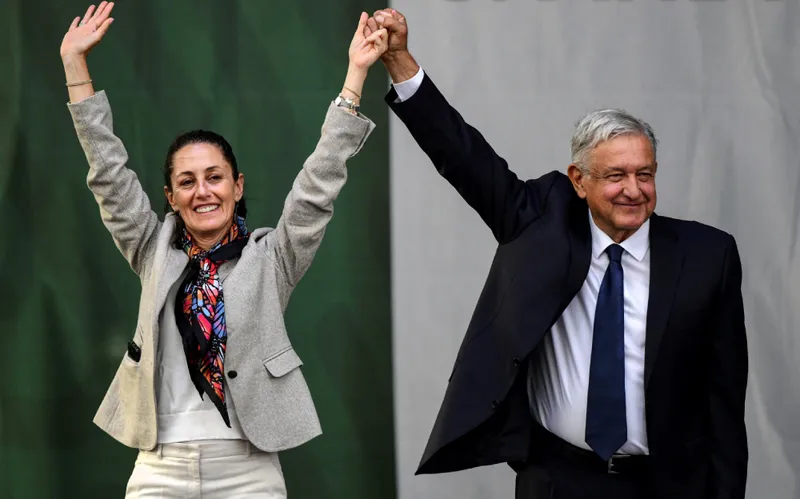
Published 03/06/2024 08:46 | Edited 06/03/2024 10:35
For the first time in 200 years of independence, Mexico will have a woman at the head of the National Palace. With 71.51% of the ballots counted by 4:50 am local time (7:50 am, in Brasília) this Monday (3), Claudia Sheinbaum had obtained 58.54% of the votes.
“We made history!” Sheinbaum told a crowd on Monday morning in the Zócalo square in the heart of Mexico City.
The candidate supported by current president Andrés Manuel López Obrador was far ahead of Xóchitl Gálvez, a center-right candidate with indigenous roots, who has already conceded defeat. Gálvez had 28.45%.
Sheinbaum’s overwhelming victory surpassed the percentage that Obrador obtained in 2018, when he received 53% of the valid votes, and serves as a reference for Latin American countries that tend to elect leaders like Nayib Bukele, president of El Salvador, in the face of violence by drug traffickers. , inequality and corruption.
Sheinbaum was one of the founders of Obrador’s Morena party (National Regeneration Movement) in 2011, and is an environmental scientist. She was Secretary of the Environment for Mexico City when the mayor was Andrés Manuel López Obrador.
She then came to command a district in Mexico City, before becoming mayor of the country’s capital, between 2018 and 2023.
The new president of Mexico will have a six-year term, without the right to re-election.
“Thank you, thank you, thank you; I won’t fail you. Let’s move forward with the Second Floor of the Fourth Transformation”, thanked Sheinbaum on X, formerly Twitter.
Since 2018, Mexico has been going through a process of changes called the fourth Mexican transformation.
The first transformation was Independence in 1821, the second the Reformation (1857-1861) of the liberals against the conservatives led by Benito Juárez, and the third the Mexican Revolution (1910-1917) led by Emiliano Zapata and Pancho Villa against the dictatorship of Porfírio Díaz and the latifundium.
The fourth transformation would be the shift to a national economy based on the general prosperity of the population, a welfare state that entails restructuring existing political institutions and practices.
Obrador leaves his term with a popular approval of 60%, three times higher than the 20% with which his predecessor Enrique Peña Nieto ended the government.
During his six-year term, the real minimum wage increased by 82% and manufacturing wages by 27%. In addition, there was, undoubtedly, a set of social programs that guaranteed to lift 8.8 million Mexicans out of extreme poverty and several others to strengthen indigenous cooperatives, projects for young people, community universities in rural regions, among many others.
Source: vermelho.org.br

